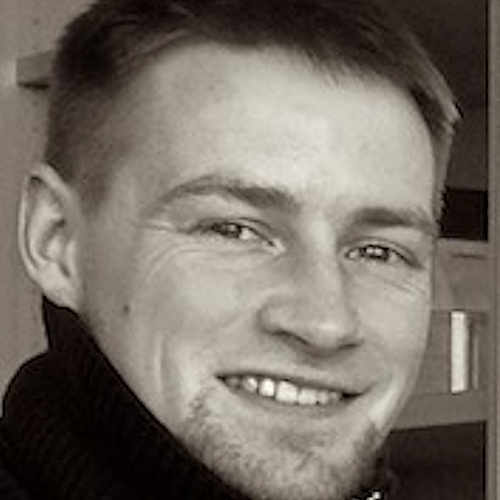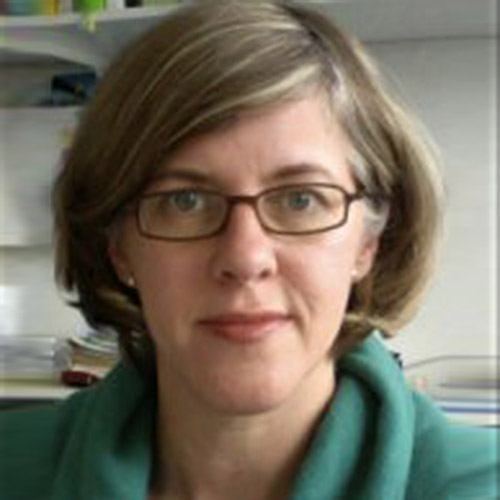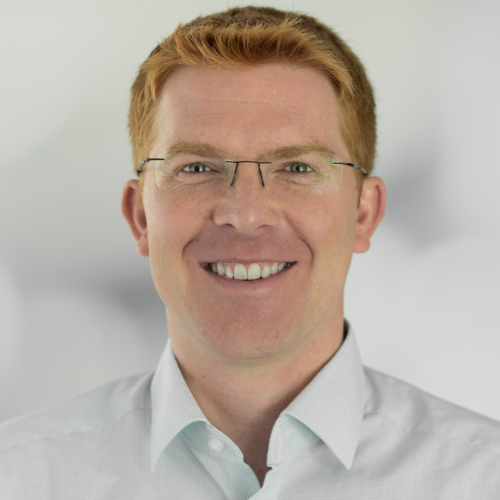Aims of the Working Group
The aim of the working group is to promote the exchange of information and practical experience from the research area "Ambient Assisted Living" (AAL) and "Assistive Health Technologies" (AGT).
Current advances in the areas of microsystems technology, ambient sensor and actuator technology for use in the home environment, as well as the automated analysis of medical data, are opening up new possibilities for the continuous recording and evaluation of health-relevant parameters. Together with other contextual data, relevant information about the individual state of health can be derived and made available to affected persons in an adequate manner. This can make a meaningful contribution to prevention and to the health self-determination of patients.
In light of the diversity of research activities in the field of assistive health technologies, the AAL/AGT working group would like to provide a forum in which different research groups, e.g. from the fields of microsystems technology, medical informatics or biomedical technology, can exchange ideas and network. Particularly for maintaining competitiveness in international comparison, networking of national research activities in the sense of cooperation seems to make sense. Furthermore, it is necessary to make the previous research results communicable for the group of users of AAL technologies and their relatives. People from the medical and nursing fields must be won over to the subject area of AAL/AGT, as must representatives from industry and trade.
Workshop of the WG in the satellite programme of the GMDS Annual Meeting 2022
The working group "Ambient Assisted Living and Assistive Health Technologies" (AAL/AGT) of the German Society for Medical Informatics, Biometry and Epidemiology invites you to a workshop in the satellite programme of the 67th GMDS Annual Meeting. Together with experts from the fields of medical informatics, housing, health care and nursing, we want to explore and evaluate the status, challenges and future of AAL projects in practice. A special focus will be on the usability of building automation and smart home technologies - especially in the broad residential market of multi-family houses and apartment buildings.
Der Workshop findet als Online-Meeting statt. Durch die inhaltliche Breite der berührten Themenfelder, richtet sich der Workshop sowohl an medizinisch-pflegerische Akteur:innen als auch an technische Berufsfelder sowie darüber hinaus an Interessierte an den Bereichen Smart Home, AAL, AGT und Wohnbau. Eine Anmeldung ist nicht erforderlich. Die Teilnahme ist kostenfrei.
Time: Friday, 26th August 2022 from 9:00 to 11:00 a.m.
Access link: Webex TU Braunschweig
Contact person: Dr. Jonas Schwartze (jonas.schwartze@plri.de)
Speakers:
- Till Walter (Johanniter-Unfall-Hilfe e.V., Leiter Stabsstelle Innovationsmanagement & Strategische Kooperationen)
- Holger Schmidt (Verband der Wohnungs- und Immobilienwirtschaft in Niedersachsen und Bremen e. V.)
- Dr. Jonas Schwartze (Peter L. Reichertz Institut für Medizinische Informatik)
Abstract
Introduction: The field of action of technical assistance systems for the design of Ambient Assisted Living environments is increasingly outgrowing research homes and demonstrators. The use of assisting health technologies in homes not only touches on the emerging trend of the "Smart Home" or the "Smart City". At the same time, it is becoming clear that beyond individual devices in flats, the building and neighbourhood scale must also be considered. The domains relevant here must be integrated in terms of functional, organisational and financial synergies and brought together through both common processes and a common infrastructure.
The first approaches of such comprehensive technical platforms for cross-domain building automation exist and provide a broad spectrum of data and information about residents, homes and buildings. [1] However, the transformation of medical care processes that include the home as a diagnostic and therapeutic space is still in its beginning stages. [2-3] Health-related requirements of medical diagnostics and therapy or outpatient care lead over into social and neighbourhood management and inherently affect housing issues. In addition, there are the possible uses of resident, housing or building data in other areas, such as energy optimisation, neighbourhood assistance or building protection.
The potential benefits of these comprehensive smart environments are equally matched by dangers that need to be considered in the design of infrastructures and processes. In addition to the obvious data protection issues, there are questions of interoperability, accountability, energy efficiency and, last but not least, ethical justifiability. A transprofessionally developed framework of principles is necessary to advance and equally guide the establishment of technically enhanced living environments. This collection of recommendations and guidelines is to be developed in the workshop of the GMDS working group AAL/AGT.
Method: In short keynote speeches by representatives of the user group, the dwelling in its role as a health location will be highlighted and experiences in the design of AAL environments and technical buildings will be gathered. In addition, the first results of a survey on the situation of building automation in Germany will be presented. The three primary perspectives are (1) the medical application of AGT in the home, (2) the design of home environments for home care, and (3) the broad feasibility from the perspective of the housing industry. The results of the discussion in the workshop and the results of the survey form the basis for recommendations and guidelines for the design of technically enhanced living environments that bring together the interests of the housing providers, the professional groups involved and the residents.
Literature
[1] Schrom H, Schwartze J, Diekmann S. Building Automation by an Intelligent Embedded Infrastructure: Combining Medical, Smart Energy, Smart Environment and Heating. In: Proc Int Smart Cities Conf; 2017. p. 113–117.
[2] Mielke C, Voss T, Haux R. Residence as a Diagnostic and Therapeutic Area - A Smart Home Approach. Stud Health Technol Inform. 2017;238:92–95.
[3] Schwartze J, Prekazi A, Schrom H, Marschollek M. Substitution of Assisted Living Services by Assistive Technology - Experts Opinions and Technical Feasibility. Stud Health Technol Inform. 2017;238:116–119.
Archive of activity reports
-
Activities in 2020
Activities in 2020
For the year 2020, a workshop was planned within the framework of GMDS & CEN-IBS 2020 on the topic of health-related building automation. When designing Ambient Assisted Living environments, the requirements of building complexes and neighbourhoods must increasingly be considered in addition to the assistance systems in individual homes. Health-related requirements of medical diagnostics and therapy or outpatient care lead over from the individual home to social and neighbourhood management and inherently affect housing issues. For the realisation of such scenarios, different domains need to be integrated in terms of functional, organisational and financial synergies and brought together through both common processes and a common infrastructure. In this context, the potential benefits of these comprehensive smart environments are also contrasted by dangers that need to be considered when designing the infrastructures and processes. In addition to the obvious data protection issues, there are questions of interoperability, accountability, energy efficiency and, last but not least, ethical defensibility. A transprofessionally developed framework of principles is therefore necessary to advance and equally guide the establishment of technically enhanced living environments. The aim of the workshop should be the initial collection of necessary recommendations. Due to the constraints of the Corona pandemic, the workshop was postponed to 2021.
During the WG meeting at GMDS & CEN-IBS 2020, the election of the WG leadership took place. Dr Jonas Schwartze from Braunschweig was elected as head of the WG. Dr Sebastian Fudickar from Oldenburg and Dr Marianne Behrends from Hannover were elected as representatives.
-
Activities in 2019
Activities in 2019
Activity from 1st January 2019 to 31st December 2019
In the reporting period, the WG focused on the publication of the results that were developed and discussed during the workshop of the WG at the 63rd Annual Meeting of the GMDS in Oldenburg.
The workshop and the publication deal with the involvement of the target group in the development of services in the field of assistive health technologies. The user-specific needs are enormously important for the successful implementation of such projects and the subsequent acceptance of the product. The challenges in involving the target group, especially with regard to user recruitment in research projects, were the subject of the workshop and were summarised in the publication.
The manuscript "Partizipation als Herausforderung bei Forschungsprojekten zu assistierenden Gesundheitstechnologien. Ergebnisse eines interdisziplinären Workshops" was published in issue 2-2020 [1]. In future, workshops of the WG will be held every 2 years and the results will be recorded and published in the same way.
Previous Workshops:
- 2017:
- Participant recruitment for AAL and AGT projects: Challenges and solutions GMDS 2017 in Oldenburg
- 2016:
- The home as a location for health care - informatics in the living room GMDS 2016 in Munich
According to the mailing list, the working group currently has 64 members.
- 2017:
-
Activities in 2018
Activities in 2018
Activity from 1st January 2018 to 31st December 2018
In the reporting period, the WG focused on the publication of the results that were developed and discussed during the workshop of the WG at the 63rd annual conference of the GMDS in Oldenburg.
The content of the workshop and the publication deals with the project-accompanying integration of the target group in the development of offers from the field of assistive health technologies. The user-specific needs are enormously important for the successful implementation of such projects and the subsequent acceptance of the product. The challenges in involving the target group, especially with regard to user recruitment in research projects, were the subject of the workshop and were summarised in the publication.
The manuscript is currently in the review phase. In the future, workshops of the WG will be held every 2 years and the results will be recorded and published in the same way.
Previous workshops:
2017: Participant recruitment for AAL and AGT projects: Challenges and solutions/
o GMDS 2017 in Oldenburg
http://www.egms.de/en/meetings/gmds2017/17gmds199.shtml
2016: The home as a location for health care - informatics in the living room
o GMDS 2016 in Munich
http://www.egms.de/en/meetings/gmds2016/16gmds126.shtml
2015: AL studies in the field test: Challenges, pitfalls, benefits
o GMDS 2015 in Krefeld
http://www.egms.de/en/meetings/gmds2015/15gmds206.shtml
2014: Big data analysis from AAL - challenges for medical informatics
o GMDS 2014 in Göttingen
http://www.egms.de/en/meetings/gmds2014/14gmds241.shtml
According to the mailing list, the working group currently has 63 members. -
Activities in 2017
Activities in 2017
In the reporting period, the WG focused on the recruitment of participants for AAL and AGT projects.
The development of assistive health technologies and services in the field of AAL requires the consideration of user-specific needs, not only in the sense of participatory research. However, user recruitment in research projects is often difficult or takes place at a later stage of technology development. The early involvement of the target group is enormously important for the success of a project and the later acceptance of a product. The barriers that exist and how they can be overcome within projects were jointly developed and discussed in a workshop at the 62nd annual conference of the GMDS.
The central questions of the workshop were:
What strategies are there for acquiring participants and which have proven successful?
Which facilitating and inhibiting factors influence recruitment?
To what extent do the interviewees need to have special skills in order to be able to assess the usability of technical applications?
What function can potential users assume in AAL-AGT projects?
What role do the researchers play in the perception of the test persons?
How can a pool of test persons be successfully built up and maintained?
The workshop was introduced with keynote speeches by Kristin Illiger (Jade University of Applied Sciences), Alexander Pauls (Jade University of Applied Sciences), Maria Rutz (Hanover Medical School), Simon Timmermanns (Johanniter-Unfall-Hilfe e.V.) and Dr. Melanie Zokoll (Hörzentrum Oldenburg) and then discussed in small groups and experiences were exchanged. The results of the workshop were prepared in a joint manuscript. The manuscript is currently in the review phase. In the future, workshops of the WG will be held every 2 years and the results will be recorded and published in the same way.
According to the mailing list, the working group currently has 63 members.
-
Activities in 2016
Activities in 2016
Activities in the reporting period 1st January 2016 to 31st December 2016
The central topic of the WG in 2016 was the examination of the home as a location for health care.
Concepts in the field of Ambient Assisted Living (AAL) and assistive health technologies (AGT) are closely linked to the home as a healthcare location. According to the Federal Statistical Office, more than two thirds of those in need of care are cared for at home, the majority of them by relatives alone. Against this background, it seems to make sense to take a closer look at the home as a place of health care and care. In this context, it is not only the premises that determine what constitutes a home. Rather, the residents with their preferences and wishes, their social contacts, but also with their physical and cognitive limitations constitute what defines the home as a health care location. The home environment as a field of research is thus characterised by complexity and interdisciplinarity.
At a workshop held on 1st September 2016 as part of the GMDS annual conference in Munich, different aspects of the home as a health location were discussed in three presentations. Mathias Witte (Hannover University of Applied Sciences and Arts) explored the question of what suggestions the "Counselling Guide on ELSI Topics in Counselling on Age-Related Assistance Systems" can provide for the inclusion of the target group and the adherence of the subjects in research projects. Ralf Eckart (OFFIS Oldenburg) used the LivingCare project, supported by the BMBF, as an example of how an adaptive AAL system that automatically adapts to the behaviour of the residents can support self-determined living in old age and home care. Markus Schinle (FZI Forschungszentrum Informatik Karlsruhe) presented the "PflegeCoDe" project, an interactive support service that integrates methods of classic dementia therapies into components in the home environment.
Previous Workshops
2015: AAL studies in the field test Challenges, pitfalls, benefits
GMDS 2015 in Krefeld (http://www.egms.de/dynamic/en/meetings/gmds2015/index.htm?main=5&sub=1)
2014: Analysis of large amounts of data from AAL - challenges for medical informatics
GMDS 2014 in Göttingen (http://www.egms.de/dynamic/en/meetings/gmds2014/index.htm?main=6&sub=3)
2013: How much medical informatics (MI) does AAL need?
GMDS 2013 in Lübeck (http://gmds2013.uni-luebeck.de/programm/workshops/mi04/)
2012: Self-determined living with AAL technologies - problems, perspectives, practical examples
GI 2012 in Braunschweig (https://www.gi.de/fileadmin/redaktion/2012_LNI/lni-p-208.pdf)
According to the mailing list, the working group has 59 members.
Activities planned for the coming year:Due to the positive response, the WG will also hold a workshop at the annual conference of the GMDS in 2017.



